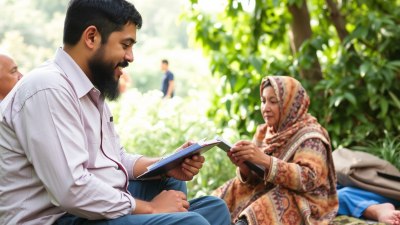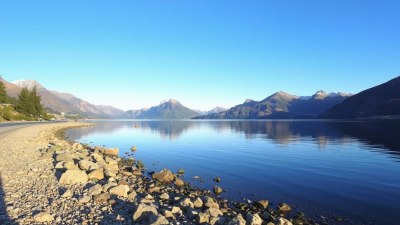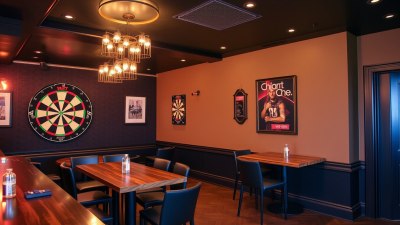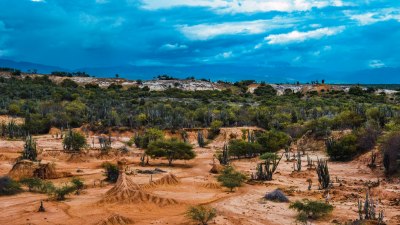Freetown, Sierra Leone – Island Adventures, Rainforest Walks & Beaches
Explore the beauty of Freetown with island adventures, rainforest walks, and pristine beaches. Discover nature's wonders today!
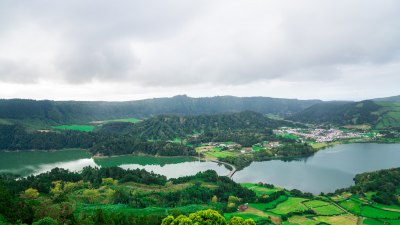
Freetown, the capital city of Sierra Leone, is not just a bustling urban center; it is a gateway to some of the most stunning natural landscapes you'll find in West Africa. Nestled between the Atlantic Ocean and the lush hills of the Sierra Leone peninsula, Freetown offers its visitors a unique blend of island adventures, rainforest walks, and breathtaking beaches. Adventure seekers, nature lovers, and those looking to unwind will find plenty to do here.
One of the most iconic features of Freetown is its stunning coastline. The beaches here are not just beautiful but rich in cultural history. Places like Lumley Beach and River No. 2 Beach are popular for their golden sands and clear waters. On a sunny day, these beaches come alive with locals and tourists enjoying sunbathing, swimming, and beach sports. Adding to the experience, the vibrant beach bars and restaurants offer delicious local cuisine and refreshing drinks. Visitors should not miss trying the traditional dishes, including jollof rice, cassava, and fresh seafood, while at the beach.
For travelers interested in exploring beyond the beaches, Freetown is also home to several islands that offer breathtaking scenery and outdoor activities. One such island is Banana Island, known for its laid-back atmosphere and stunning beaches. The island can be reached by a short boat ride and is perfect for spending a relaxing day away from the hustle and bustle of mainland life. Travelers can enjoy snorkeling, swimming, and even hiking the trails that lead through the island’s lush greenery.
Another must-visit destination is Turtle Island, famous for its eco-tourism opportunities and nesting sea turtles. The tranquil surroundings make it an ideal spot for nature lovers and bird watchers. The island is a true refuge for wildlife, and visitors should take the opportunity to engage with the local guides to learn about the conservation efforts taking place to protect the species endemic to the region.
As you continue your exploration around Freetown, the surrounding tropical rainforest presents a rich opportunity for adventure. The Tacugama Chimpanzee Sanctuary just outside of the city is a conservation center dedicated to rescuing and rehabilitating chimpanzees. Visitors can take guided tours of the sanctuary, where they can learn about the incredible work being done to protect these endangered primates and witness them in their natural habitat. It's a fantastic way to connect with nature while supporting an important cause.
For those who enjoy hiking, the lush hills of Freetown provide numerous trails that wind through verdant rainforest, offering breathtaking views of the city and coastline. The hike to Mount Aureol is particularly rewarding; the panoramic view from the summit is nothing short of spectacular. Along the trails, you may encounter various species of wildlife, colorful birds, and exotic plants that make the rainforest a vibrant ecosystem. Visitors should ensure they're well-prepared with water, suitable footwear, and perhaps a local guide to help them navigate these scenic routes.
Freetown’s rich culture can also be experienced through its vibrant festivals and events. The city is known for its lively music and dance, heavily influenced by traditional African rhythms. Visitors can engage with local performances, especially during festivities, where the spirit of the community is showcased through colorful parades and lively gatherings. The annual Freetown Music Festival and the Sierra Leone Festival of Comedy are just two examples of events that draw both locals and tourists alike, uniting them in celebration.
The historical significance of Freetown adds another layer to its allure. The city was established in the late 18th century as a home for freed slaves and has a rich heritage that can be explored. The Cotton Tree, a famous landmark in the center of Freetown, symbolizes freedom and resilience. According to local legend, it is said that freed slaves of African descent settled around it when they first arrived. Today, it serves as a gathering place and a poignant reminder of the city’s origins.
Notably, the Sierra Leone National Museum, located in Freetown, houses a diverse collection of artifacts that narrate the history and culture of the country. Exhibits include traditional masks, crafts, and items related to the slave trade, allowing visitors to gain a deeper understanding of Sierra Leone's past. It is an important stop for history buffs and those interested in the cultural narratives that shape the identity of the nation.
Freetown is a city bustling with life, and exploring its local markets is an experience not to be missed. The Big Market in the city center is one of the largest and liveliest markets in the area, brimming with colorful fabrics, handmade crafts, fresh produce, and spices. This vibrant atmosphere offers visitors a glimpse into the everyday life of the locals. Haggling is the norm here, making it a fun and interactive way to engage with sellers and learn about traditional goods.
In conclusion, Freetown is a city that truly offers something for everyone. Whether you’re looking to soak up the sun on pristine beaches, embark on jungle hikes, or immerse yourself in the rich culture and history of Sierra Leone, Freetown invites you to explore and appreciate its diverse offerings. As tourism grows in the area, it's essential to engage respectfully with the local communities and natural surroundings to ensure that this beautiful destination remains preserved for future generations. Through its blend of adventure, scenery, and culture, Freetown stands out as a must-visit location in West Africa, with incredible experiences waiting for every traveler.

